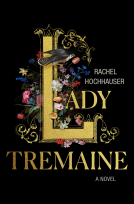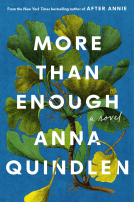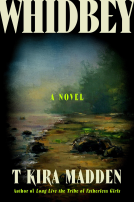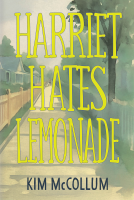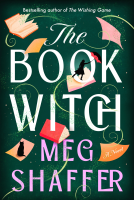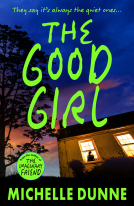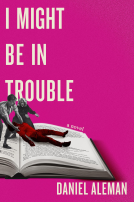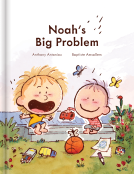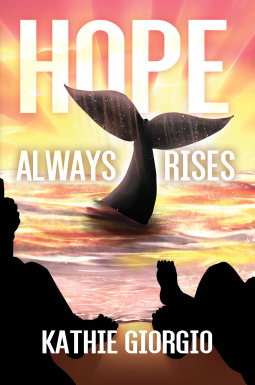
Hope Always Rises
by Kathie Giorgio
This title was previously available on NetGalley and is now archived.
Send NetGalley books directly to your Kindle or Kindle app
1
To read on a Kindle or Kindle app, please add kindle@netgalley.com as an approved email address to receive files in your Amazon account. Click here for step-by-step instructions.
2
Also find your Kindle email address within your Amazon account, and enter it here.
Pub Date Feb 28 2023 | Archive Date May 30 2023
Talking about this book? Use #HopeAlwaysRises #NetGalley. More hashtag tips!
Description
"Rich with empathy, humor, and imagination, Giorgio paints a beautiful picture of the afterlife that is a balm for anyone who has ever lost someone." –Marisa Dondlinger, author of Open and Gray Lines
In Heaven, there is a gated community for those who end their lives by choice. This is a complete surprise to 43-year old Hope, who ends her life one morning on the banks of the Fox River in Waukesha, Wisconsin.
Hope has always dealt with deep sadness. From childhood on, she visited therapists, doctors, alternative medicine practitioners, Reiki artists, etc., to no avail. In Heaven, God reassures her that he knows what caused the sadness, but he won't reveal it yet.
All community residents are required to attend weekly group therapy. Hope's first group is led by Virginia Woolf.
Several of the book's chapters tell the stories of other members of this group. Filled with many moments of striking humor, uplifting realizations, and difficult challenges, Hope finds her way in Heaven. She meets many people like herself, who help her restore her forgotten artistic talent and passion, and God himself, who is amazingly human in the most inhuman of ways. Hope finds understanding and forgiveness, and most importantly, friends.
A Note From the Publisher
Advance Praise
"...a beautiful, heartfelt, and surprisingly funny take on the normally uncomfortable topic of suicide." -Nora Murray, author of Kingdom Come
"...offers an intriguing variation on the theme of salvation, this one with a fallible God who enjoys a sangria." -Angela Bier, author of The Accidental Archivist
Available Editions
| EDITION | Ebook |
| ISBN | 9781685132422 |
| PRICE | $5.99 (USD) |
| PAGES | 342 |
Available on NetGalley
Average rating from 4 members
Featured Reviews
In a Nutshell: Not my usual genre, but a lovely book nonetheless. Introspective and therapeutic. Fantastical yet grounded. Christian fiction with a strong but liberal biblical premise. Won’t work for everyone but to the select few who read this kind of fiction, it ought to click excellently.
Story Synopsis:
Forty-three-year-old Hope has been sad since childhood and nothing she does can alleviate that feeling. One morning, she decides that she has had enough of life, and kills herself with an overdose, leaving behind her husband and two teenaged children. When she opens her eyes, she finds herself in ‘Heaven’, which is not exactly like what people on earth imagined, and yet a dream place in every way. As Hope died by suicide, she is in a special gated section of Heaven with others who also chose to end their lives. While “life” in heaven is indeed amazing, it comes with a mandatory weekly group therapy. And it is through this therapy that Hope learns to do what the title says: she rises.
The story comes to us mostly in the first person perspective of Hope.
I am not that fond of philosophical-style fiction, not do I usually read fiction based on religious concepts such as heaven. But sometimes, a book’s blurb just calls to my heart and I cannot help but grab it. This was one such occasion. Thankfully, the gut feel was right.
A fictional work about a place beyond death might remind you of Matt Haig’s ‘The Midnight Library’ or Mitch Albom’s ‘The Five People You Meet In Heaven.’ But this book, while having a couple of similarities to these works, is unlike them at its core. The key differentiating factor is that the central characters have all chosen to die by suicide.
At the start, I wondered if the book was trying to glorify suicide by dialogues such as ‘You did the best thing for you’. But no, the author successfully conveys to us the feelings of the departed AND of those left behind in grief. I am astounded at how well she ended up writing such a tricky topic – making the dead character feel better while not absolving them of their deed’s aftermath. This is not a book that condones suicide, but one that allows us to condone those who took that drastic step. After all, forgiveness is the first step on the route to healing.
You might assume that those who opt for suicide might have a dysfunctional family or a terrible childhood, but that is not always the case, and the book proves this wonderfully. The content highlights the importance of mental health in a person’s wellbeing. In fact, the whole book spotlights mental health issues without going down the stereotypical track of therapy=recovery.
As you might guess, those who ended their lives had their reasons for doing so. We also get a chance to hear their stories through many interlude chapters that step away from Hope’s first person narrative and break into a third-person storytelling of one character’s decision to end their life. (Each interlude having a separate character’s backstory.) Most of these were just brilliant, and not what you typically see in fiction. Only a couple of these interludes stuck to typical angles such as having an abusive spouse.
Did I mention that ‘God’ also makes an appearance in this book? In keeping with the Christian theme, he is written as a bearded old man. However, the rest of his behaviour depicts him more like a loving ‘Father’ than a awe-inspiring ‘God’—one who talks with his children, drinks coffee with them, jokes with them, advices them, and even helps them move ahead. This is one of the few books where I felt touched by a fictional depiction of God.
(To be honest, I am also in awe of the fictional heaven of this novel. Imagine a heaven with coffee shops and endless supplies of favourite foodstuffs, and as many books as desired, and I can interact only with those I want to… Wow! Gimme, gimme!)
Most importantly, this novel can be a wonderful source of hope for those whose family members/friends might have taken the extreme step of killing themselves. There are so many churches that castigate suicides, claiming that such people will never enter heaven. Such a work can provide closure by indicating not just how heaven is a welcoming place for everyone, but also how God is forgiving towards all. Accepting this thought could be so therapeutic to the grieving!
The God + heaven angle must have already clarified to you that this is Christian fiction. While there is a biblical undertone in many of the scenes, the overall feel is more liberal than conservative or evangelical. This is perfectly in sync with my own liberal Christian beliefs, and hence I appreciated the tone of the book even more. That said, the book isn’t only for Christian readers. Its theology is somewhat universal, and its characters go beyond any religious demarcations. So even if you keep aside the biblical stuff, you will still find a lot of valuable and thought-provoking content herein.
All this may make the book sound very intense and morose. But while it is introspective, there are plenty of light moments as well, filled with family, friendship, and fun. One surprise factor is the presence of author Virginia Woolf – she has a pretty big role to play in Hope’s group therapy session. There is one more VIP appearance at the end that left me with a big teary smile. I shall leave you to discover this person’s identity for yourself.
All in all, this shouldn’t have been my type of book at all as I don’t favour philosophical or religious fiction. But it came in my life at the right time, and its approach towards the topic won me over. This isn’t an exciting novel but a calming one, offering loads to ponder upon.
Definitely recommended to those looking for a slow but soothing literary read with modernised Christian values.
4.25 stars.
PS: Just in case you are wondering why there is a whale fluke on the cover, you will get your answer if you read the book.
Content warning: This is a book about people who killed themselves in various ways and for various reasons. Do you really need to have content warnings? The whole book is a content warning!
My thanks to Black Rose Writing and NetGalley for the DRC of “Hope Always Rises”. This review is voluntary and contains my honest opinion about the book.
 Reviewer 1048278
Reviewer 1048278
This novel creates an emotion-filled ride through a roller-coaster of ups and downs. It evoked chuckles, tears, moments of deep consideration, and periods of pain. It vacillated from a light read to a dark plunge, but it was never dull. Written with brilliance and expertise in word crafting, Hope Always Rises will remain in the reader’s thoughts long after the last word is read. However, some words of caution are needed. Although the term “trigger” is hated by some, this novel is written around plenty of them, most notably the disturbing subjects of depression, suicide, and the consequences of each. From a spiritual perspective, some may take offense to the portrayal of an almost human-like God, but I accepted it as a work of fiction and was intrigued by the vision of Heaven and its leader.
Readers who liked this book also liked:
L.M Montgomery
Children's Fiction, Comics, Graphic Novels, Manga, Teens & YA
Sir Arthur Conan Doyle
Comics, Graphic Novels, Manga, Mystery & Thrillers, Teens & YA
Anthony Antoniou; ; Anthony Antoniou
Children's Fiction

